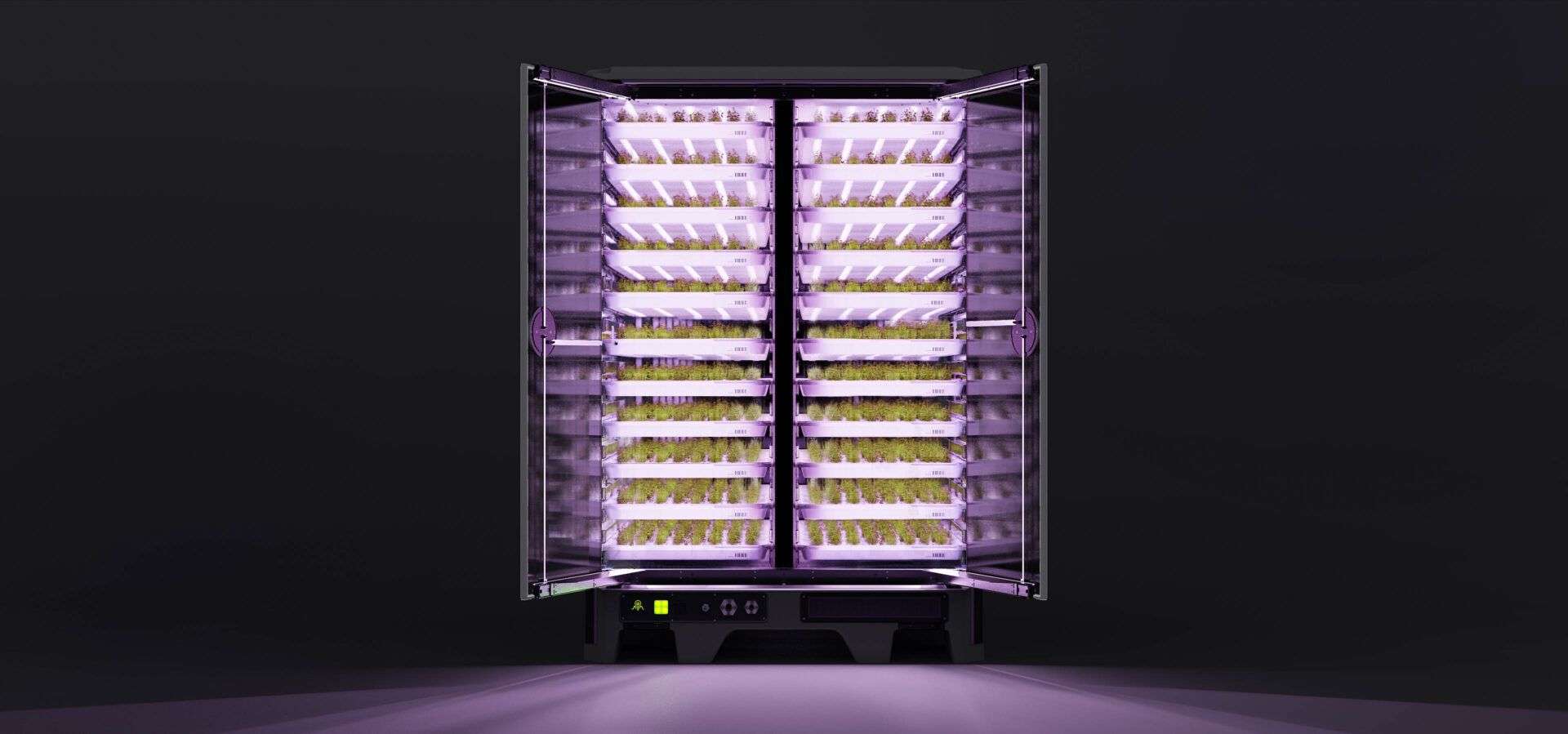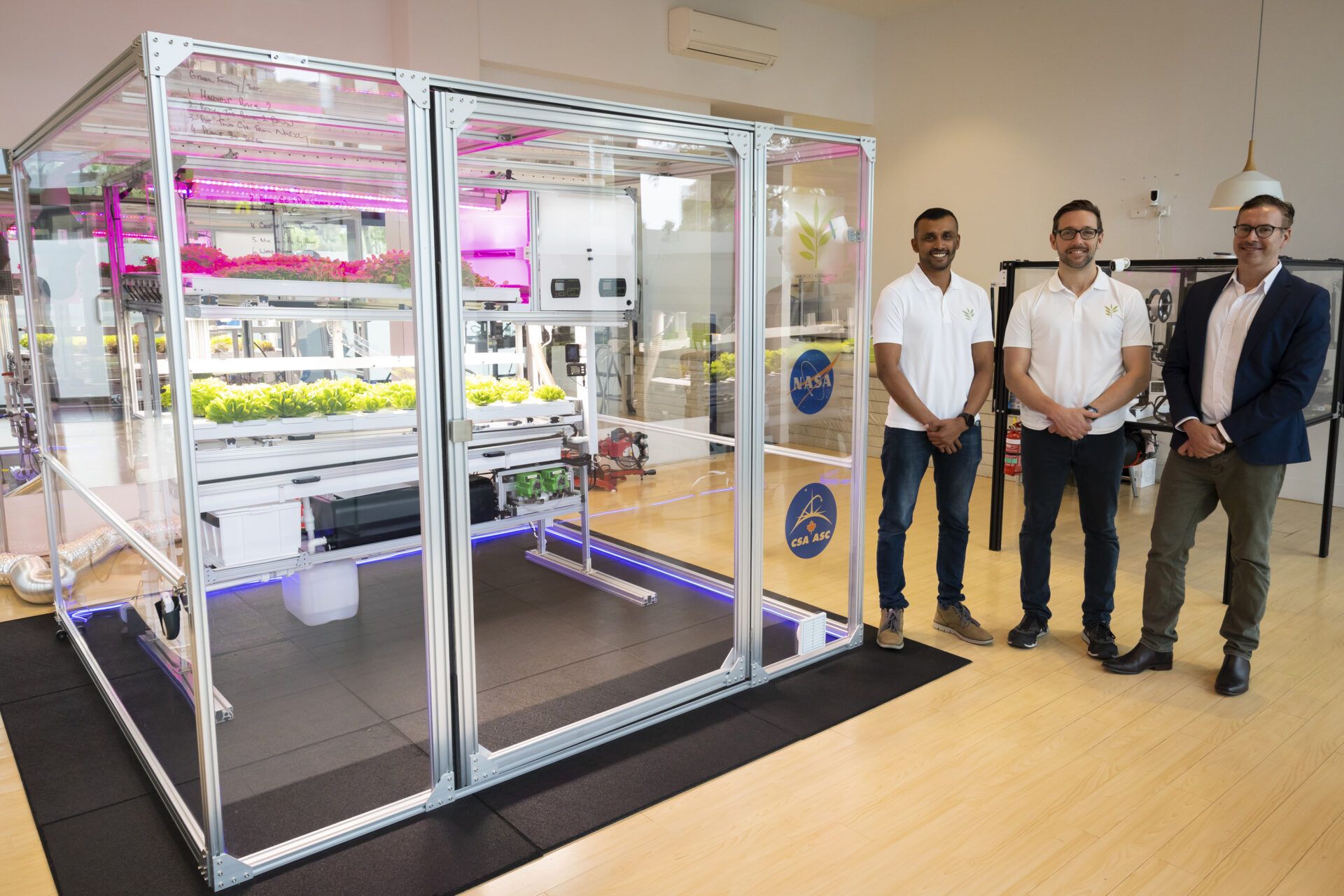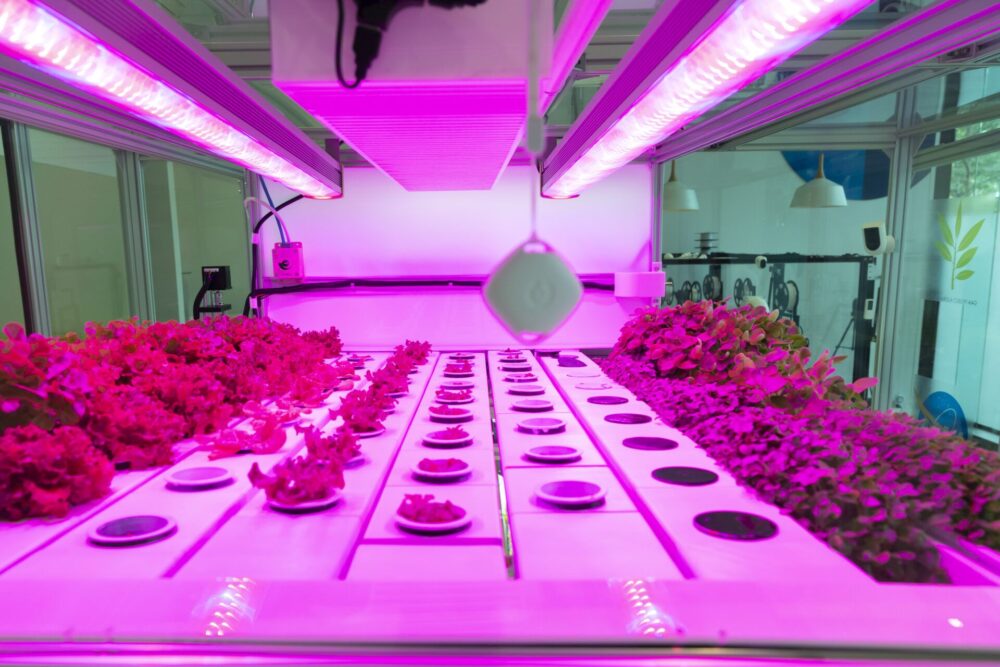As global agricultural resources become more finite and population growth continues, many are turning to novel systems to remedy the planet’s overtaxed food system.
Australia is home to many of the latest innovations in novel farming systems, which are now gaining more visibility and investment with support from the AgriFutures growAG. platform that connects startups, researchers and investors to address pressing issues in the global food system.
Three Aussie startups to watch – and which are also currently featured on growAG. – are biotech company ARC Ento Tech, indoor farming platform InvertiGro and the Gaia Project Australia, a vertical farming solution.
The trio illustrates just how much variety and capability can be found within the novel farming systems category, and each solution bears potential use cases far beyond the borders of Australia, from major metropolises to developing regions to outer space.

Why we need novel farming systems
Food systems account for roughly one third of global emissions. Industrial agriculture is also a major contributor to soil degradation, deforestation and biodiversity loss.
At the same time, the global population is trekking towards 10 billion people by 2050, increasing food production needs while resources (land, water) grow more finite each year.
Novel farming systems can provide solutions to some of these problems. For example, startups leveraging insects for protein could alleviate some of the pressure to produce more protein for the world. Likewise, indoor growing systems could boost food security, particularly for countries lacking arable farmland. Many of these solutions are currently being cultivated in Australia in parallel with innovation in traditional farming systems.
Decentralized production around the world
ARC Ento Tech, a biotech startup based in New South Wales, is a great example that leverages the black soldier fly to repurpose organic and inorganic waste taken straight from landfill.

The startup’s mission is to tackle the world’s massive overflow of municipal solid waste — aka trash — by setting up novel production systems at the landfills themselves.
The system employs the black soldier fly to consume and turn organic waste such as food scraps into larvae that can be used for feed and fertilizer.
Indigestible organic waste (wood, rubber, paper) and plastic can also be processed with this system using a patent-pending technical process that turns it into a high-carbon reductant for industrial use.
“We don’t see waste the way we used to,” Ramon Atayde, ARC Ento Tech’s chairman and managing director, tells AFN. “We now see it as a resource.
“We actually have a secondary source of raw material or commodities. We’re not going out to nature and continually taking from it. We’ve got everything we need from everything we’ve consumed. That’s the circularity of that concept.”
A critical component to ARC Ento Tech’s approach is the decentralized nature of its system.
“Rather than going to a centralized plant, we decentralize the system and put plants at the landfill,” he says. “That way, we save on logistics, which is the biggest cost component for most businesses today.”
He believes this approach is critical to the startup’s ability to scale its novel system worldwide; ARC Ento Tech is now seeking AUD $10 million ($6.6 million) investment to achieve this goal. The startup’s system can be located anywhere in the world, so it can be as impactful in developing nations as it is at home in Australia.
“We’ve developed a system that allows us to build a self-sustaining business, and our model works anywhere: Australia, the US, Europe, Sri Lanka, Bangladesh, and Africa,” says Atayde. “The model works because it brings food prices down.”

‘Modular but ultimately scalable’
Back in the world of indoor agriculture, Sydney-based InvertiGro is trying to solve the tech problem for controlled-environment agriculture (CEA).
The startup began about a decade ago, when off-the-shelf vertical farming technology was hard to come by. The original plan was to both build the technology and grow the plants.
“A couple of years into this, we realized we were solving problems others were going to have to solve,” co-founder Paul Millet tells AFN. “If we were all competing in this game, everyone would be trying to solve things concurrently and just hide the intellectual property. We just couldn’t see that as a sustainable model.”
So, InvertiGro pivoted and became a technology builder “so that people everywhere could pick this technology up at any scale, literally from micro to mega farm, and deploy it successfully.”
InvertiGro designs, builds and provides support for vertical farming systems, which other companies can purchase and use to grow produce. Customers can easily integrate the hardware-software system into their existing operations and use the resulting data to optimize plant growth.
InvertiGro is currently raising a AUD $12 million ($8 million) Series A round to accelerate its path to fully commercialize its technology.
The modular system means customers can tailor it to fit their needs. For example, a food retailer might locate a small model right in the store, while a traditional farmer wanting to diversify could place a large vertical farm close to existing field operations.
Millet says this modular aspect is critical to achieving supply chain security, because farms could in theory live anywhere.
“If we get the flexibility in our model to enable others, then we believe we’re onto something that can literally be scaled and installed everywhere to solve this problem,” he says.
He describes the InvertiGro system as “small, modular but ultimately scalable.”
Like ARC Ento Tech, Millet believes scalable solutions are critical to achieving food security and boosting production worldwide.

Growing in space to feed the Earth
The Gaia Project Australia has also developed a novel system for indoor growing.
“The most advanced way of growing [specialty] crops is transplant,” explains founder and CEO Nadun Hennayaka. “You use different tunnels or boards to grow plants to a certain age, then move them to another platform.”
In many cases this is done with robotics — but at great cost. Hennayaka notes one example “that’s about half a million dollars for a single lane robot to do transplant in one day.”
Using human labor for transplants presents other problems, including finding enough labor and grappling with contamination. “If you use humans for transplant, you can’t control what they do outside,” he says.
Gaia’s solution wasn’t to pick robotics or humans, but to eliminate the need to transplant in the first place.
“We built a telescopic channel system that creates less space between plants in the initial days. As the plants grow, that channel itself expands.” This allows plants to grow at a higher density at all stages of their growth cycle, adds Hennayaka. This in turn can double plant yields while halving operational costs for growers.
This resourceful idea won Gaia Project NASA’s International Innovation Award in 2021; Gaia also went on to build an actual prototype system for NASA in 2022.
The work with NASA has continued with the Intelligent Crop Cultivation Module, a modular leafy green cultivation system that can mimic plants’ natural growth cycle.
“If you can build tech that’s good enough for space, that’s a great solution for us to push for terrestrial uses too,” says Hennayaka.
But space isn’t the only destination for Gaia’s system; it’s also available to indoor growers such as greenhouses and vertical farms. Gaia can retrofit existing indoor farms with its system to bring down costs and improve yields. It also works with growers looking to build entirely new CEA operations from the ground up.
At the end of the day, the Gaia system is about minimizing costs for growers, increasing yields and collaborating with others in the CEA industry to build something that’s “proven, tested and good to go,” says Hennayaka.
Gaia is currently seeking a $2 million investment via the AgriFutures growAG. platform. Funds will enable the company to expand its Melbourne-based operations, engineering and commercial manufacturing to multiple markets in Australia and internationally, bringing true scale to the system.
Other novel farming systems
Amongst the 80+ opportunities currently seeking collaborators and/or investors on the growAG. platform features a number of other startups developing novel farming systems for high-value niche sectors.
Among them are Australian Vanilla Plantations, a company developing geodesic dome greenhouse technology to scale production of vanilla cost effectively. Meanwhile, Aquatic AI is automating aquaculture operations to more efficiently produce marron, a luxury seafood product with a lucrative export opportunity.
For more information on these startups and others, visit the growAG. website.





